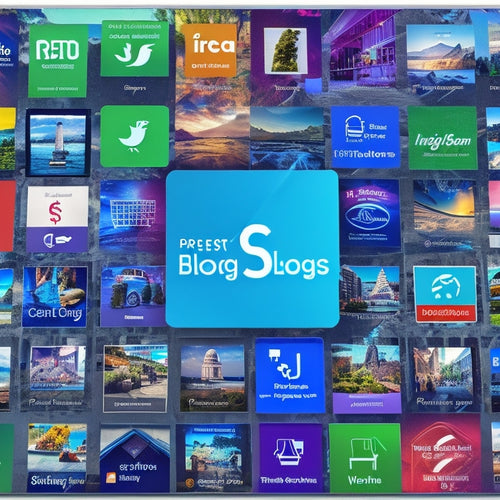
Why Shopify Is Good for SEO
Share
Shopify, a popular e-commerce platform, has garnered attention for its potential benefits in terms of search engine optimization (SEO). This article aims to examine the reasons why Shopify is considered good for SEO and provide valuable insights for optimizing Shopify websites.
By utilizing technical strategies and data-driven approaches, Shopify users can enhance their online visibility, improve organic rankings, and attract more targeted traffic to their websites.
Moreover, this article will offer helpful tutorials and resources to help readers explore and implement effective SEO techniques within the Shopify platform.
- Easy-to-use interface and intuitive features
- Built-in optimization features like meta tags and sitemaps
- Mobile-friendly design for seamless user experience
- Fast loading speed for improved website performance
Benefits of Shopify for SEO
Shopify offers several benefits for SEO management, making it a popular choice for businesses looking to optimize their online presence.
With its easy-to-use interface and intuitive features, Shopify allows users to efficiently manage their SEO strategies and make necessary adjustments as needed.
Additionally, the platform provides built-in optimization features, such as meta tags and sitemaps, which streamline the process of improving search engine rankings.
Moreover, Shopify's mobile-friendly design benefits and fast loading speed ensure a seamless user experience, further enhancing the website's visibility and accessibility.
Lastly, the platform offers seamless integration options with various marketing tools and apps, allowing businesses to expand their SEO efforts and reach a wider audience.
Easy SEO Management
One advantage of the Shopify platform is its streamlined interface for managing SEO, facilitating efficient optimization of websites.
Shopify offers a wide range of SEO plugins and tools to enhance the visibility and ranking of online stores. These plugins enable users to optimize page titles, meta descriptions, URLs, and alt tags for images, among other elements important for search engine optimization.
Additionally, Shopify provides built-in SEO analytics that allow users to monitor website performance, track keyword rankings, and identify areas for improvement.
With these features, Shopify empowers users to make data-driven decisions and implement strategic SEO tactics to drive organic traffic to their online stores.
Overall, Shopify's easy-to-use interface and comprehensive SEO capabilities contribute to a seamless and effective SEO management experience for online businesses.
Built-In Optimization Features
The built-in optimization features of the Shopify platform facilitate the efficient management and improvement of website visibility and ranking. With its user-friendly interface and built-in analytics, Shopify empowers website owners to monitor and analyze key metrics that impact their search engine optimization (SEO) efforts.
The platform provides valuable insights into website traffic, keyword performance, and conversion rates, allowing businesses to make data-driven decisions and optimize their website accordingly. Shopify's built-in analytics also enable businesses to track the effectiveness of their SEO strategies over time and make adjustments as needed.
This data-driven approach ensures that businesses can continuously improve their website's visibility and ranking, ultimately leading to increased organic traffic and higher conversion rates. By incorporating these built-in optimization features, Shopify provides a comprehensive solution for businesses seeking to enhance their SEO performance and achieve their online goals.
Mobile-Friendly Design Benefits
Mobile-friendly design benefits businesses in several ways. Firstly, it provides an optimized user experience across various devices, leading to increased engagement and improved accessibility. Responsive design allows websites to adapt to different screen sizes and resolutions, ensuring that the content remains legible and easy to navigate. This is particularly important in the era of mobile browsing, where a majority of users access websites through their smartphones.
By implementing a mobile-friendly design, businesses cater to the needs and preferences of their target audience, resulting in higher user satisfaction and longer browsing sessions. Improved user experience not only enhances brand perception and customer loyalty but also positively impacts search engine rankings. Search engines like Google prioritize websites that offer a seamless mobile experience, resulting in higher organic traffic and better visibility for businesses.
Therefore, it is crucial for businesses to invest in responsive design to stay competitive and enhance their online presence.
Fast Loading Speed
Fast loading speed is a crucial factor in website performance and user satisfaction, as it directly affects the overall browsing experience and influences user retention rates.
Optimizing page load time is essential for improving website performance. Research has shown that a slow-loading website can lead to increased bounce rates and decreased conversions. Users expect websites to load quickly, and if a website takes too long to load, they are likely to abandon it and find an alternative.
Therefore, it is vital for website owners to prioritize improving their website's loading speed. This can be achieved through various strategies such as optimizing images, minifying code, leveraging browser caching, and using content delivery networks (CDNs).
Seamless Integration Options
Seamless integration options provide website owners with the ability to incorporate various features and functionalities into their websites, enhancing user experience and expanding the range of capabilities available to users.
When it comes to SEO, these integration options play a crucial role in improving a website's visibility and ranking on search engine result pages (SERPs).
One important aspect of seamless integration is SEO plugin compatibility. By integrating SEO plugins, website owners can optimize their websites for search engines, improving their chances of ranking higher in organic search results. These plugins enable website owners to easily customize meta tags, optimize content, generate XML sitemaps, and perform other SEO-related tasks.
With seamless integration options and SEO plugin compatibility, website owners can effectively enhance their SEO strategies and improve their website's visibility and performance in search engine rankings.
Tips for Shopify SEO
This discussion will focus on key points for optimizing Shopify websites for search engine optimization (SEO).
Firstly, the use of meta tags and descriptions plays a crucial role in informing search engines about the content and relevance of webpages.
Secondly, implementing a mobile-friendly website design is essential to ensure a seamless user experience on various devices and improve search engine rankings.
Thirdly, optimizing product images by compressing them and adding relevant alt tags can enhance website performance and visibility in image search results.
Lastly, utilizing keyword research techniques can help identify target keywords and optimize website content to improve organic search rankings.
Meta Tags and Descriptions
Optimizing meta tags and descriptions on Shopify can enhance the search engine visibility of a website.
Meta tags play a crucial role in search engine optimization (SEO) as they provide information about the content of a webpage. When properly optimized, meta tags can help search engines understand the relevance and context of a webpage, thereby improving its ranking in search results.
Effective meta descriptions, on the other hand, provide a concise summary of the webpage's content, enticing users to click and visit the site. To write effective meta descriptions, it is important to include relevant keywords, keep the description concise (around 150-160 characters), and make it compelling to encourage click-throughs.
Mobile-Friendly Website Design
Mobile-friendly website design plays a crucial role in enhancing user experience and improving the accessibility of a website on various mobile devices. With the increasing usage of smartphones and tablets for browsing the internet, having a responsive web design has become essential for businesses.
Responsive web design allows websites to adapt their layout and content to different screen sizes, ensuring optimal viewing experience for users. This not only improves user engagement but also contributes to better search engine rankings.
User experience optimization is a strategic approach that focuses on creating a website design that is visually appealing, user-friendly, and intuitive. By optimizing the mobile experience, businesses can attract and retain more users, increase their conversion rates, and ultimately drive more traffic to their website.
Optimizing Product Images
The optimization of product images involves enhancing the visual appeal and quality of images to effectively showcase the features and details of a product. It is an important aspect of image SEO techniques, as high-quality and visually appealing images can significantly improve the overall user experience, increase click-through rates, and ultimately drive more conversions.
To optimize product images, it is essential to ensure that the images are of the appropriate size and resolution, have descriptive file names, and incorporate relevant alt text. Compressing the images without compromising their quality can also help improve page loading speed.
Additionally, utilizing schema markup can provide search engines with more information about the images, further enhancing their visibility in search engine results pages.
Overall, optimizing product images is crucial for improving user engagement and search engine rankings, making it an essential aspect of any successful SEO strategy.
Utilizing Keyword Research
Utilizing keyword research involves identifying and analyzing relevant search terms that can drive organic traffic to a website and improve its visibility in search engine results pages.
By conducting target audience analysis, businesses can determine the specific keywords and phrases that their potential customers are using to search for products or services. This analysis allows businesses to optimize their website content, including product descriptions, blog posts, and metadata, to align with the search terms that their target audience is most likely to use.
By incorporating these keywords strategically throughout their website, businesses can increase their visibility in search engine results pages and attract more qualified organic traffic.
This data-driven approach to keyword research and optimization is essential for businesses looking to improve their online presence and connect with their desired audience.
Helpful Tutorials for Shopify SEO
One valuable resource for learning Shopify SEO techniques is a collection of helpful tutorials. These tutorials serve as helpful resources for individuals interested in optimizing their Shopify websites for search engines.
By following step-by-step guides provided in these tutorials, users can gain a deeper understanding of the various SEO techniques specific to the Shopify platform. These tutorials often cover topics such as keyword research, on-page optimization, meta tags, URL structure, and site speed optimization.
They provide users with practical strategies and actionable insights to improve their website's visibility and search engine rankings. The tutorials also offer tips and best practices for creating engaging content, building high-quality backlinks, and utilizing social media for SEO purposes.
Overall, these tutorials are an essential tool for those seeking to enhance their Shopify SEO knowledge and skills.
Learn More About Shopify SEO Techniques
A comprehensive understanding of effective search engine optimization (SEO) techniques specific to the Shopify platform can be acquired by delving deeper into the subject matter.
Shopify SEO plugins play a crucial role in improving Shopify SEO rankings. These plugins provide additional functionalities and features that can enhance a website's SEO performance. They offer tools for keyword research, content optimization, meta tags, and other SEO-related tasks.
By utilizing these plugins, Shopify users can optimize their website's structure, improve site speed, and implement SEO best practices. Additionally, integrating third-party plugins can further enhance SEO efforts on the Shopify platform.
It is essential for Shopify users to stay updated with the latest SEO trends, algorithm changes, and industry practices to maintain and improve their search engine rankings.
Frequently Asked Questions
Can Shopify Improve My Website's Organic Search Rankings?
The impact of Shopify on website traffic and its effectiveness in improving organic search rankings can be measured through analyzing the SEO features it provides. This data-driven approach is important for strategizing and optimizing website performance.
Does Shopify Provide Built-In SEO Features or Do I Need to Use Third-Party Apps?
Shopify provides built-in SEO features, eliminating the need for third-party apps. Keyword research and on-page optimization are crucial for effective SEO on Shopify. Following best practices in these areas can enhance organic search rankings.
How Does Shopify Handle URL Structure and Redirects for SEO Purposes?
The impact of URL structure on Shopify SEO and the importance of redirects for Shopify SEO are key considerations. Properly structured URLs and effective redirects can positively affect a website's search engine optimization efforts on the Shopify platform.
Can I Optimize My Shopify Store for Mobile Seo?
Mobile optimization is essential for improving mobile user experience and ensuring better visibility on search engines. By implementing best practices such as responsive design, fast loading times, and mobile-friendly content, Shopify store owners can effectively optimize their stores for mobile SEO.
Are There Any Limitations or Challenges With Shopify's SEO Capabilities That I Should Be Aware Of?
Limitations and challenges may exist with Shopify's SEO capabilities. These could include limited control over technical aspects, potential issues with duplicate content, and limited customization options for optimizing certain elements. Awareness of these factors is crucial for effective SEO strategies.
Related Posts
-

How Do I Import Products From Any Website to Shopify With This App
This article explores the process of importing products from any website to Shopify using a specific app. It aims to...
-

Why Are Blogs Important in Shopify
The importance of blogs in the context of Shopify is a topic of interest in the field of e-commerce. This article ai...
-

How Good Is Shopify Email Marketing
Shopify email marketing has gained significant attention in recent years due to its potential benefits for businesse...


